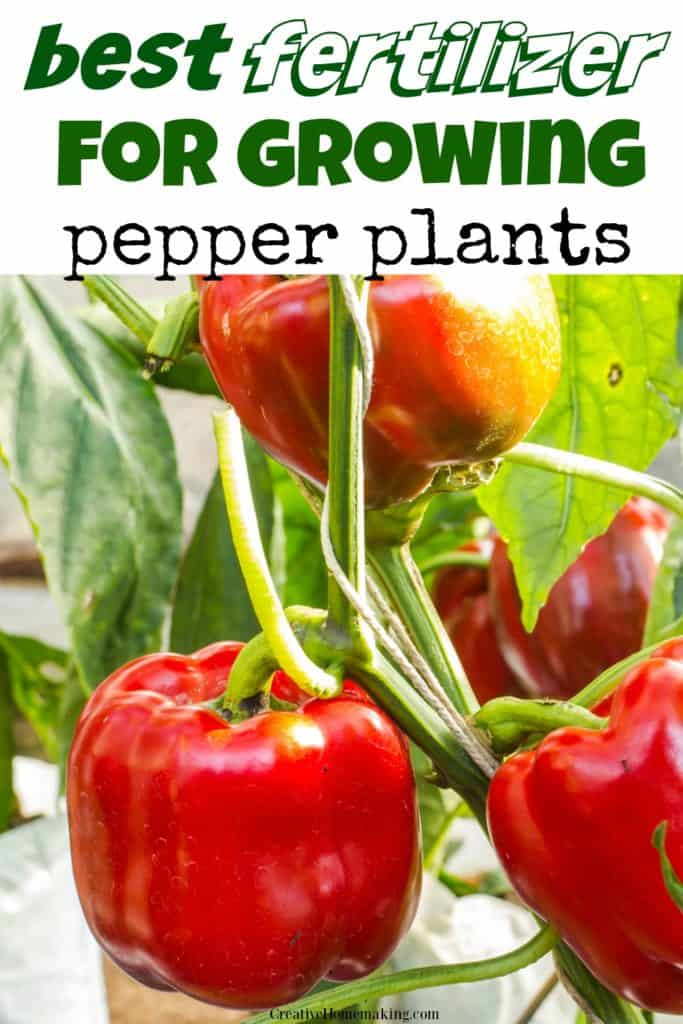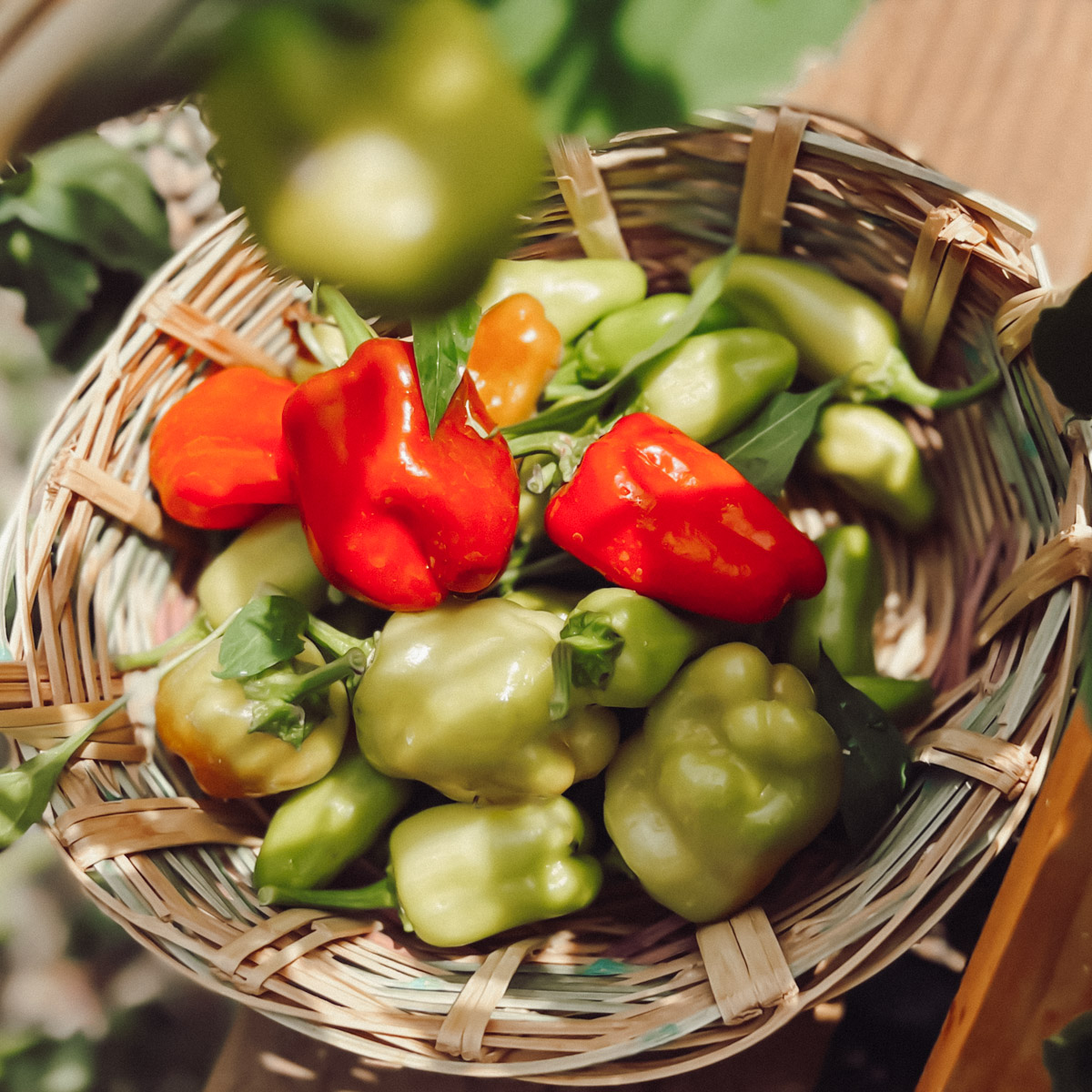The Ultimate Guide to Fertilizing Peppers: Enhancing Development and Flavor Naturally
As pepper lovers look for to grow robust plants generating delicious fruits, the role of fertilizing ends up being critical in achieving these objectives. By checking out the benefits of all-natural fertilizers, unlocking the secrets behind pepper plant nutrient needs, and diving right into the realm of natural fertilizer alternatives, a world of possibilities arises for enhancing the vigor and flavor account of these cherished plants.
Advantages of All-natural Plant Foods
All-natural fertilizers offer a variety of benefits that contribute to the general health and efficiency of pepper plants. By improving the soil with organic matter, such as compost or manure, all-natural plant foods boost its water retention ability and nutrient-holding capabilities, creating a much more welcoming setting for pepper plants to thrive in.
Moreover, all-natural fertilizers sustain a diverse and active dirt microbiome, promoting beneficial microbial task that aids in nutrient recycling and uptake by the plants. This microbial task can aid subdue dangerous virus and conditions, lowering the demand for chemical treatments. In addition, all-natural plant foods advertise long-lasting soil health and wellness by preserving a balanced ecosystem underground, which in turn sustains the overall health and wellness and strength of pepper plants above ground.
Understanding Pepper Plant Nutrient Demands
Having developed the benefits of organic plant foods in improving dirt health and advertising microbial task, the emphasis currently moves to comprehending the particular nutrient demands crucial for optimum development and flavor in pepper plants.

Understanding the details nutrient requirements of pepper plants is vital for achieving plentiful harvests with superb taste. By providing the ideal balance of nutrients with organic fertilizers or dirt amendments, farmers can ensure healthy and balanced, vigorous plants that create tasty peppers throughout the growing season.
Organic Plant Food Options for Peppers
In improving the development and flavor of pepper plants, selecting the proper organic plant foods is a vital factor to consider. Organic fertilizers provide a sustainable and all-natural means to nourish pepper plants without presenting unsafe chemicals to the soil and setting. One prominent alternative is compost, which enriches the soil with essential nutrients and enhances its framework, advertising healthy and balanced root growth and overall plant growth. In addition, garden compost helps maintain dampness in the soil, lowering water stress on pepper plants throughout warm weather.
An additional effective organic plant food for peppers is aged manure. Rich in potassium, nitrogen, and phosphorus, aged manure offers a balanced nutrient mix that sustains vigorous growth and abundant fruit production (best fertilizers for peppers). It is essential to use well-aged manure to stop melting the plants with excess ammonia
Fish emulsion is a fast-acting natural fertilizer that provides pepper plants with a fast increase of nutrients. Originated from fish waste, this fertilizer is high in nitrogen, making it particularly advantageous during the very early stages of pepper plant development. Fish emulsion is very easy to apply and is easily absorbed by the plants, promoting healthy foliage and solid root development.
When selecting a natural fertilizer for peppers, take into consideration the specific nutrient demands of your plants and select choices that straighten with your horticulture techniques and values.
Finest Practices for Fertilizing Pepper Plant Kingdoms
Taking into consideration the importance of picking ideal natural plant foods for pepper plants, implementing best methods for fertilization is vital to guarantee ideal development and taste development. It is additionally important to feed pepper plants at the appropriate time, typically prior to growing and throughout crucial growth stages such as flowering and fruit development.
An additional crucial method is to avoid over-fertilization, as this can result in nutrient discrepancies, stunted development, or also plant damage (best fertilizers for peppers). Adhering to recommended dose guidelines and not exceeding them is important for the general health and wellness of the pepper plants. In addition, integrating raw material right into the dirt with compost or mulching can assist improve dirt structure, water retention, and nutrient availability, advertising much healthier pepper plants with improved flavor profiles. By adhering to these finest techniques, you can properly nurture your pepper plants and accomplish abundant harvests with exceptional preference and high quality.
Troubleshooting Common Fertilizing Issues

pH discrepancy is one more problem that can influence nutrient uptake in pepper plants. When the soil pH is too expensive or also reduced, particular nutrients end up being not available to the plants. Consistently checking the soil pH and making adjustments making use of natural changes can help maintain an appropriate pH degree click reference for ideal plant development. Finally, inconsistent fertilizing practices can cause unequal development and fruit advancement. Establishing a routine fertilizing routine and adhering to more tips here advised application rates can aid prevent this problem and make sure healthy and balanced pepper plants throughout the expanding season.
Verdict
To conclude, making use of all-natural plant foods can dramatically boost the growth and taste of pepper plants. By comprehending the nutrient needs of pepper plants and picking organic fertilizer options, garden enthusiasts can effectively promote energetic and healthy and balanced development. Adhering to best techniques for fertilizing pepper plants and fixing typical fertilizing concerns can aid make sure effective growing of peppers. Generally, correct fertilization techniques are necessary for optimizing the yield and high quality of pepper plants.
By discovering the benefits of all-natural fertilizers, opening the secrets behind pepper plant nutrient needs, and diving into the realm of natural fertilizer alternatives, a globe of possibilities arises for improving the vitality and taste account of these cherished plants.Fish solution is a fast-acting natural plant food that provides pepper plants with a fast boost of nutrients. It is additionally essential to fertilize pepper plants at the best time, typically before growing and during vital development stages such as flowering and fruit advancement.
By understanding the nutrient demands my latest blog post of pepper plants and picking natural plant food options, gardeners can efficiently promote healthy and strenuous development. Following finest methods for fertilizing pepper plants and troubleshooting common fertilizing issues can assist guarantee successful farming of peppers.
 Molly Ringwald Then & Now!
Molly Ringwald Then & Now! Yasmine Bleeth Then & Now!
Yasmine Bleeth Then & Now! Brandy Then & Now!
Brandy Then & Now! Jenna Von Oy Then & Now!
Jenna Von Oy Then & Now! Danny Pintauro Then & Now!
Danny Pintauro Then & Now!